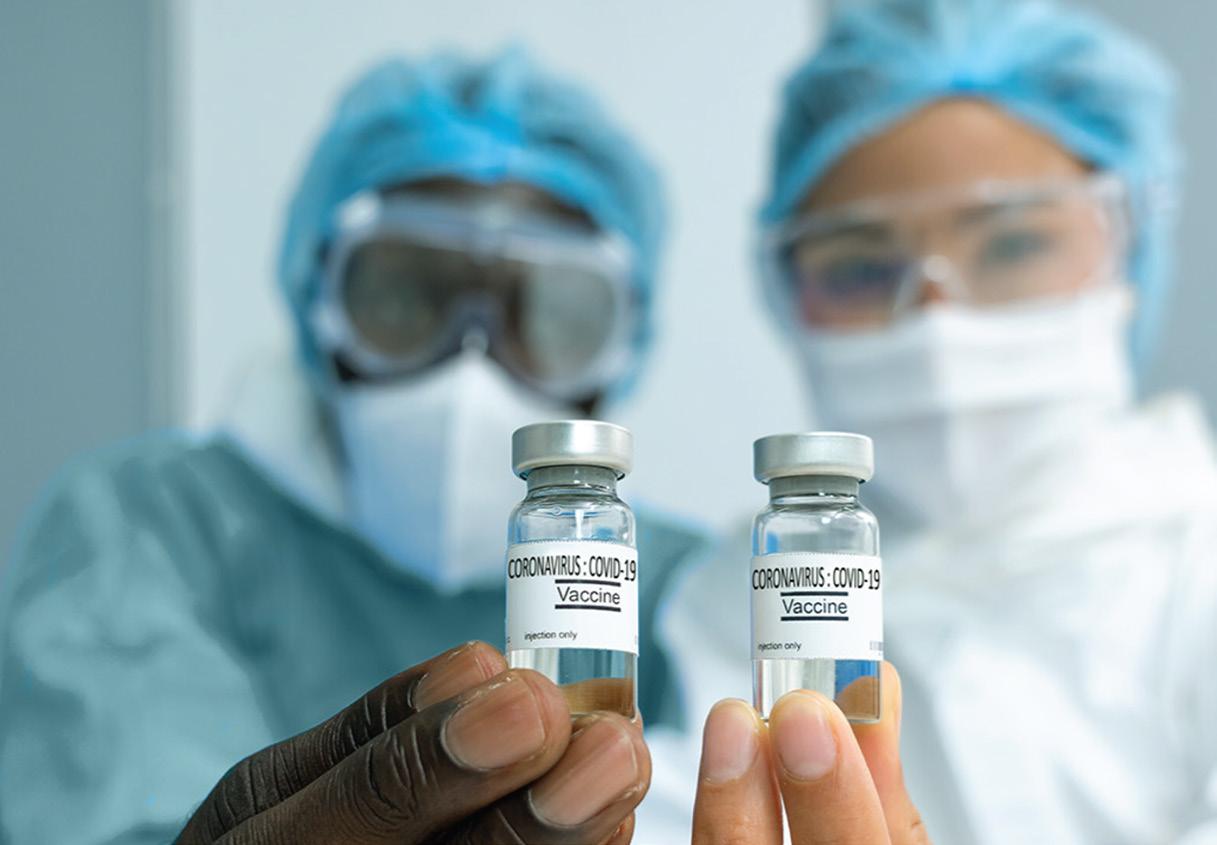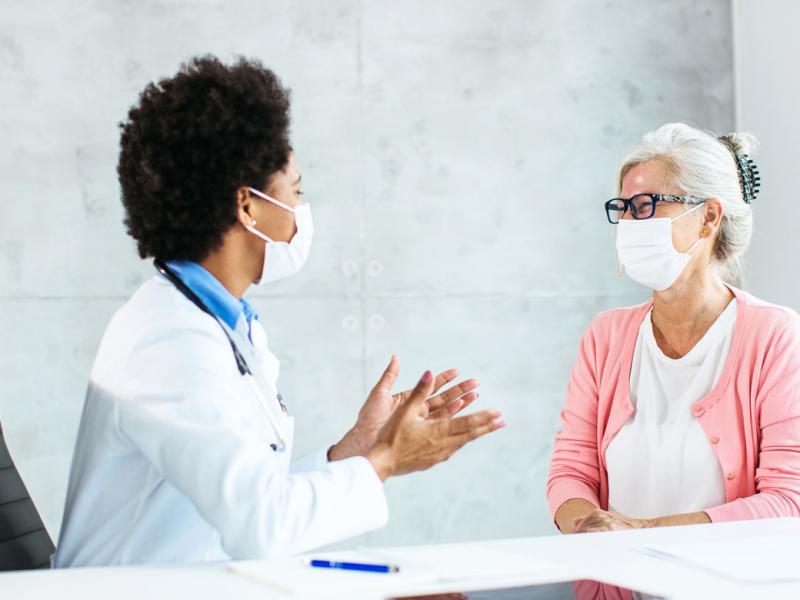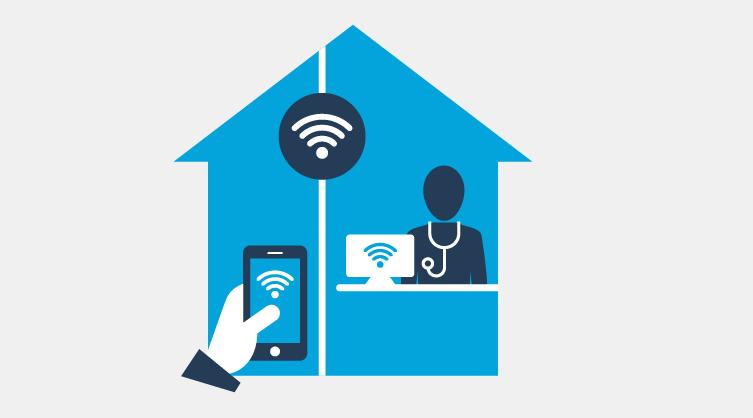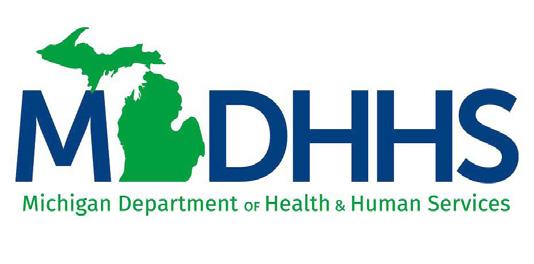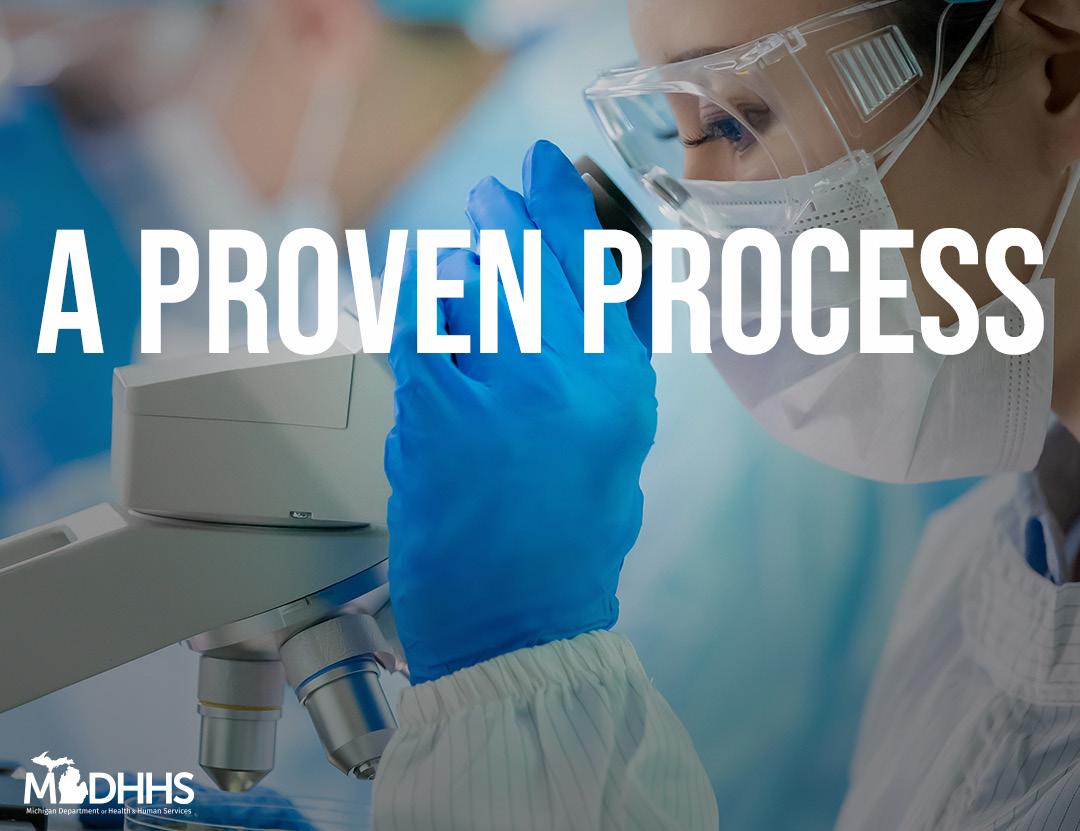NATIONAL FORUM ON
COVID-19 VACCINE
Communicating About COVID-19 Vaccine Safety and Risk Most people in the United States are planning to get a COVID-19 vaccine. However, some may want more information, including information about the safety and effectiveness of COVID-19 vaccines. Take the time to listen to people’s concerns and answer their questions. This can help them become confident in their decision to get vaccinated. Strong confidence in the vaccines within communities leads to more vaccinations, which in turn lead to fewer COVID-19 illnesses, hospitalizations, and deaths. Consider principles from Crisis and Emergency Risk Communication when communicating about COVID-19 vaccine safety. • Be first. Share information and what is known, what is not known, and what is being done to fill in the gaps as quickly as possible. • Be right. Ensure the information that you share is accurate in order to establish credibility. • Be credible. Communicate honest, timely, and scientific evidence so the public can trust your information and guidance. • Express empathy. Acknowledge what people are feeling and consider their perspectives when providing recommendations. • Promote action. Keep action messages simple, short, and easy to remember. • Show respect. Actively listen to the issues and solutions brought up by local communities and leaders. When communicating about COVID-19 vaccine safety and risks, be sure to emphasize: • COVID-19 vaccines are safe and effective. » Millions of people in the United States have received COVID-19 vaccines, and these vaccines have undergone the most intensive safety monitoring in U.S. history. • COVID-19 vaccines meet all safety standards. » The Food and Drug Administration (FDA) carefully reviews all safety data from clinical trials and authorizes emergency vaccine use only when the expected benefits outweigh potential risks. » The Advisory Committee on Immunization Practices (ACIP), a group of immunization and public health experts, reviews all safety data before recommending any COVID-19 vaccine for use in the United States.
Remember: If a person has concerns or questions, this doesn’t necessarily mean they won’t accept a COVID-19 vaccine. Sometimes people simply want your answers to their questions.
• COVID-19 vaccines will be continually monitored for safety. FDA and CDC will continue to monitor the safety of COVID-19 vaccines to make sure even very rare side effects are identified. • After COVID-19 vaccination, many people will have mild side effects. » Pain or swelling at the injection site, fever, chills, tiredness, or a headache are common and can be a sign that the vaccine is working. » A small number of people have had a severe allergic reaction (called “anaphylaxis”) after COVID-19 vaccination, but this is extremely rare. When it does happen, vaccination providers have medicines available that they can use to effectively and immediately treat the reaction. • The known risks associated with getting sick with COVID-19 far outweigh any potential risks of getting a COVID-19 vaccine, especially for people at increased risk of severe COVID-19 illness.
Additional CDC Resources and References Education for Patients COVID-19 vaccines People at Increased Risk What to Expect after Getting a COVID-19 Vaccine Ensuring the Safety of COVID-19 Vaccines in the U.S.
Tips for Providers
COVID-19 Vaccination Communication Toolkit Vaccinate with Confidence Answering Your Questions About the COVID-19 Vaccines Quick Answers for Healthcare Professionals to Common Questions People May Ask about COVID-19 Vaccines Making a Strong Recommendation for COVID-19 Vaccination Answering Patients’ Questions
www.cdc.gov/CovidVaccineForum
CS 322424-V
02/25/2021
Macomb Medicus | April/May/June 2021 21



